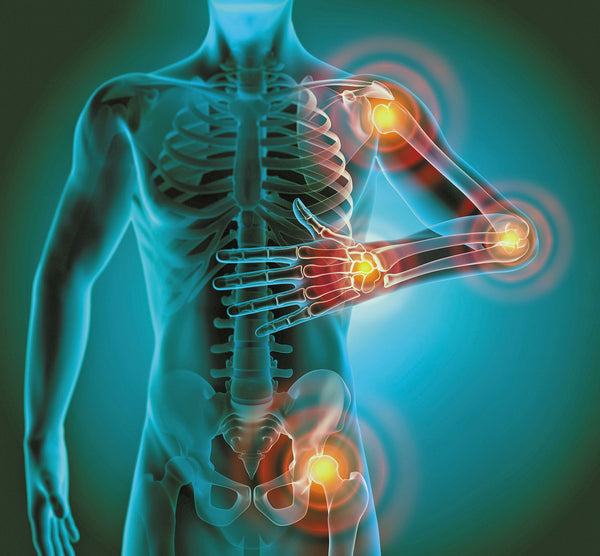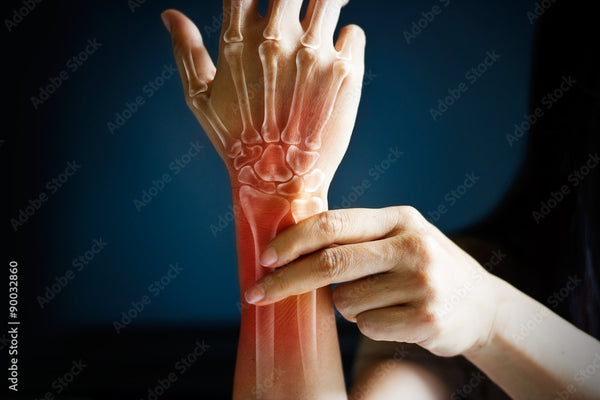What are the signs and symptoms of neuropathy

Neuropathy occurs for a wide range of reasons at any stage in someone’s life. If you are concerned that you might have neuropathy, keep reading as we discover the most common symptoms of this condition. We always recommend checking with a medical professional to confirm your diagnosis if you feel you have any of these symptoms and then work to find the best treatment solution for your needs.
Numbness in the Body
One of the most common signs of neuropathy is the gradual feeling of numbness in the body. For most people, this starts with a tingling sensation in the hands or feet. From there, it can spread upwards, heading towards the legs and arms. If you notice numbness in any of your limbs, this is a good sign that you might be experiencing the first symptoms of neuropathy. At this stage, we encourage you to start making changes to your lifestyle and diet and consider the ways in which you can treat neuropathy. The sooner you take control of your condition, the more likely you’ll be to stop the numbness from taking over more of your body.
Pain Throughout the Body
As well as the general feeling of numbness in the body, this pain can be more intense for some patients. If you feel a sharp or burning pain, this could be another symptom of neuropathy. This is also something that requires quick treatment, as this may make moving about each day very difficult for you. A common sign that you are experiencing neuropathy is that an activity you used to do without pain is suddenly hurting. This could be something as simple as applying a small amount of weight to your feet. You should be able to go about your daily life without pain, which is why you need to seek treatment sooner than later.
Sensitive to Touch
Neuropathy can mean you are far more sensitive to touching anything. If you notice you feel temperature or pressure more than before in your feet or hands, you may be experiencing neuropathy. Of course, there are other conditions that have this as one of their symptoms too. We recommend ruling out other concerns first by speaking to a medical professional. Some people even feel like they are wearing socks or gloves when they don’t have anything on. We know how concerning this can be, which is why it’s so important to receive treatment.
Muscle Weakness
Muscle weakness is something that many patients with neuropathy experience as their symptoms progress. This may result in a lack of coordination, or you may find yourself falling more regularly. If you live alone or do a physical job, this can be very disconcerting. By doing all you can to treat nerve pain early on, you’ll have less of a chance of this happening in the future.
Low Blood Pressure
While the majority of the symptoms we’ve shared so far are more concerned with touch and the feeling in your limbs, another common sign of neuropathy is low blood pressure. This may come with an abnormal heart rate. If you stand up quickly, you might feel faint or lightheaded, which can be quite dangerous when you are alone. You’ll likely experience these symptoms alongside the ones we’ve shared above, otherwise, you may find that it isn’t just neuropathy that you need to be concerned about.
Issues with Urination and Digestion
Neuropathy doesn’t just impact your muscles and limbs and can also wreak havoc on your internal organs. Many patients with neuropathy find they have trouble urinating, as their bladder is also impacted by the condition. Digestion may be disrupted as well, which may see you experiencing vomiting, nausea, and bloating. Finally, your bowels may not be able to carry out their usual functions, so you may find you have diarrhea or constipation more often.
Muscle Weakness or Twitching
Muscle weakness and muscle twitching are two concerns you may experience together or separately. Muscle weakness usually means it’s harder to walk than before, or you may not be able to move your arms and legs. Muscle twitching, cramps, and spasms can make everyday life very uncomfortable, as you don’t feel like you have full control over your limbs. If you find you lose control of one part of your body, make sure you seek assistance straight away. While this is a symptom of neuropathy, it’s also a symptom of other more life-threatening conditions.
Loss of Dexterity in the Hands
The hands and the feet are the two areas we see most patients experience their first symptoms of neuropathy. When this happens, you are likely going to find it harder than ever to perform basic tasks. This could include something like holding a cup of coffee, which may no longer feel possible due to the numbness and muscle weakness. Our hands are crucial for our everyday activities, which is why you need to seek treatment as soon as possible. Remember, you don’t have to just rely on medication now, as there are other natural treatments you might want to consider if you do find yourself diagnosed with neuropathy.
With so many symptoms of neuropathy, it’s easy for people to get this condition confused with other medical conditions. For that reason, we always recommend getting a second opinion from a medical professional. They’ll be able to diagnose what type of neuropathy you have and suggest the best course of action for your current symptoms. The sooner you receive treatment, the more likely you’ll be able to return to your previous quality of life or adapt to living with neuropathy.
The good news is that there are many different treatment options on offer for neuropathy. You don’t have to rely on medication, as you’ll find there are natural options on the market now today. Make sure you find a solution that works for you and helps you to live a healthier and happier life without unnecessary side effects. You’ll find we offer many resources on our site to help overcome neuropathy symptoms and enjoy a good quality of life for years to come.




